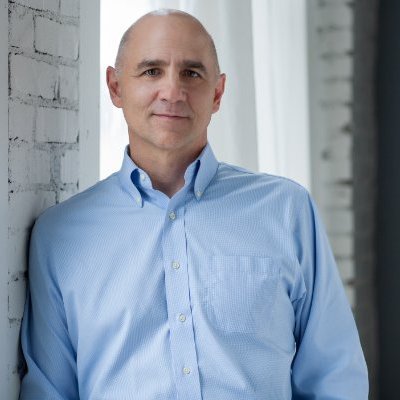
J.D. Kleinke
- Medical Economist
- Author
- Health Care Business Strategist
- Entrepreneur
Travels From
California
J.D. Kleinke Speaker Biography
J.D. Kleinke is a medical economist, author, and former entrepreneur. He has been instrumental in the creation of four health care information organizations; has served on the Boards of several health care companies; and spent many years advising both sides of the political aisle on non-partisan, practical approaches to health policy and legislation.
J.D. was one of the pioneers of the health care informatics industry. In the 1990s, he was a principal architect in the creation and rapid growth of HCIA / Solucient – now Truven Health Analytics – from a niche health care data analysis firm, to a leading provider of information products to health care organizations across the U.S. and Europe. He also helped establish HealthGrades, which he served as Executive Vice Chairman of the Board when it was a public company.
J.D. has been a member of the Editorial Board of Health Affairs and a frequent contributor to The Wall Street Journal and The Huffington Post. As a Resident Fellow at the American Enterprise Institute, J.D. was the first to publish in the national media about the actual conservative origins of the Affordable Care Act. His article on these origins in The New York Times – “The Conservative Case for Obamacare,” published five weeks before the re-election of President Obama – generated significant controversy, but has since become part of the nation’s understanding of the law.
Finally, a little bit of show business. J.D. is the author of three books about the US health care system, including the critically acclaimed Catching Babies – a novel about the training and culture of OB/GYNs, which is currently in development as a television series by Warners Bros TV and ABC.
To book J.D. Kleinke call Executive Speakers Bureau at 901-754-9404.
The Future is Now: Health Care Business Strategies in the Age of Obamacare, Market Consolidation & Cost Compression
What happens as 30 million new people enter the health care “system” as we know it, and what will it mean for your organization? The Affordable Care Act, or Obamacare, has survived numerous political attacks and implementation challenges; but the health reform law itself may be overshadowed by larger shifts in market power - and continuing government budget crises, as lawmakers target Medicare and Medicaid as sources of major savings. This session provides a critical overview of where health care stands today; the latest on spending trends and market dynamics; and how the health reform plan will play out for all major stakeholders, including providers, payers, employers, patients and consumers. This session examines the concurrent effects of the reform plan, health insurance market upheavals, increasing patient economic empowerment, and emerging information technologies on today’s health care organization. And it lays out a practical framework and set of critical success factors for your organization going forward, as health care faces the greatest challenges and changes in our lifetimes.
M&A Under Obamacare: Gold Rush – Or More Fools’ Gold?
Beyond the politics of Obamacare, the Affordable Care Act has been sending quiet shockwaves through the US health care landscape through a daisy-chain of mergers and acquisitions. Payers and providers are scrambling to re-align around what many believe will be major changes in reimbursement, health insurance markets, and consumer and patient economic behavior. They are also rushing into difficult new health care segments like Medicaid that appear promising, but may represent potential economic disasters. Health insurers are reacting to Obamacare the same way they did to the last assault on their profit margins - managed care in the 1990s - with lockstep acquisitions of each other, of providers, and of businesses with often tenuous relevance to their core competencies. There may be a great deal of wishful thinking surrounding these attempts at horizontal and vertical market consolidations - and many may inevitably fail in execution for the same reasons of strategic and cultural conflicts that they did in the 1990s. This session provides a critical look at the strategic thinking behind these deals – and forecasts how they will play out – or re-play out, in many cases – over the next few years.
Risky Hospital Business 2: Remake of the 1990s Managed Care Classic
Buried not so deep in President Obama’s health reform plan are radical changes in provider payment methodologies. Accountable Care Organizations, Medical Homes, Electronic Medical Record-related subsidies and penalties – these are only a few of the latest attempts to correct the health system’s economic, behavioral and organizational disorders a century in the making. The cost and quality problems that gave rise to the national managed care companies in the 1990s have not gone away, inspiring both the government and large health plans to simultaneously revisit many of those same managed care strategies. Will this second round - and double dose - of harsh economic medicine prove worse than the disease? Or are certain aspects of health care’s cost and quality problems simply incurable? How can provider organizations cope with a system that, as the government and payers attempt to re-engineer it around reimbursement, seems to yield only more chaos? This session will outline how your organization can navigate the latest attempt to use reimbursement and other payment reforms to re-engineer the U.S. health care system.
American Medicine 2.0: The Revolution will be Computerized
Many of the core provisions of the new health reform plan are already finding their way into the business strategies of the larger health plans and more aggressive provider systems. These include the bundling of provider payments – with bonuses for good outcomes and penalties for bad ones - to hospitals and physicians for both high-dollar acute cases; transfer of financial risk from insurers and the government to “accountable care organizations” for the aggregate cost of chronically ill patients, also with bonuses and penalties driven by reported outcomes; and rapid adaption of current clinical information systems and/or the re-engineering of antiquated clinical workflows. All of these new initiatives are highly dependent on major expansions in the availability of patient clinical data - including all lab and imaging data and related studies – along with the creation of new information flows within and across provider systems. The aggregate effect of these ultimately inter-related initiatives will translate into new opportunities for clinical integration. This session will outline how your organization can avoid the pitfalls and seize the opportunities associated with this long overdue computerization of American medicine.
The Patient Is In: Health Care’s Next Economic Revolution
Over the past two decades, the locus of medical decision making – via the rise and fall of “managed care” - has shifted from physician to health plan to patient. Tiered co-payments and the introduction of high-deductible health insurance, coupled with Health Savings Accounts, are ushering in the inevitable decline of first-dollar coverage by health plans and the often irrational demand-inducement behavior of consumers. How will people behave when they are confronted daily with a financial document that looks like a 401(k) plan statement - one which shrinks with every doctor visit, lab test, new prescription and refill? Everything we think we know about how consumers will behave when purchasing routine care from these new cash accounts - and about how desperately ill patients will behave when confronted with draining those same accounts when fighting a life-threatening illness - is completely speculative. This session examines key moments in health care system history and policy for clues as to what the future will hold for all of us, not just as patients, but as real health care consumers.
eHealth 2.0: The Once and Future Health Care Information Revolution
A new generation of health information technology is emerging – and this one may finally ready for primetime, thanks to $17.2 billion in Federal funding. Beyond the government’s sudden willingness to finance the computerization of health care, there has been explosive growth in e-prescribing and other electronic medical tools, as a new generation of providers comes online - and as patient communities have also emerged online, allowing patients to share exquisite details about their medical conditions and experiences. To attract and retain the most lucrative (i.e., well-off, well-insured and web-enabled) segments of the market, providers and payers at the vanguard are promoting the use of provider/patient e-visits and remote systems to manage disease, track changes in symptoms, and share data. New reimbursement methods and models – including insurer-paid e-visits and annual “connectivity” fees from patients – are emerging in parallel with these technologies, as the health IT community finally addresses the need for privacy, security, physician income preservation, and liability protection. The sum total of these trends is the long overdue computerization of health care, and the "liquification" of patient data from paper charts and institutional silos - with far-reaching strategic consequences for every organization in health care. This session will outline how your organization can avoid the technical pitfalls and seize the market opportunities associated with this long overdue connectivity between providers and patients.
The High Price of Progress: Who Pays for Medicine's Good Bad Luck?
The majority of medical research compels the utilization of ever newer and ever more expensive drugs and other medical technologies. At the same time, the majority of actions by private and public health plans seek to constrain their use – or outright shift the bulk of payment for them to patients and their families. The result is an emerging collision course - between the march of medical science and the countermarch of medical policy - arising from often bitterly divided views about the optimal use of expensive medical resources. The turmoil in the private health care system's approach to managing health benefits and costs can be remedied through adoption of a value-based (rather than price-based) approach to pharmaceutical and other medical technology spending - and all stakeholders in the system have the opportunity to enable, rather than resist, the hard economic news associated with all of our good clinical luck.











